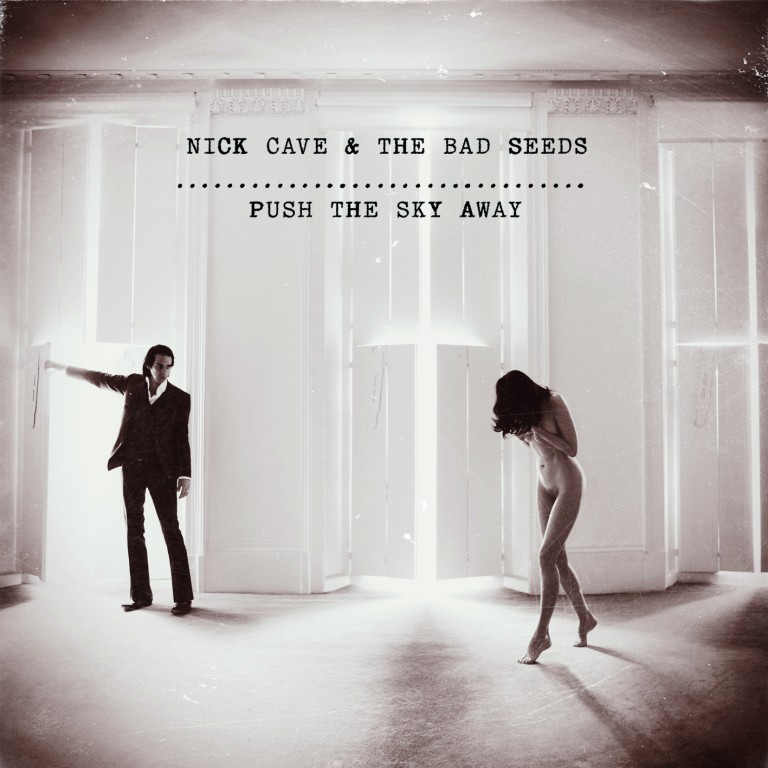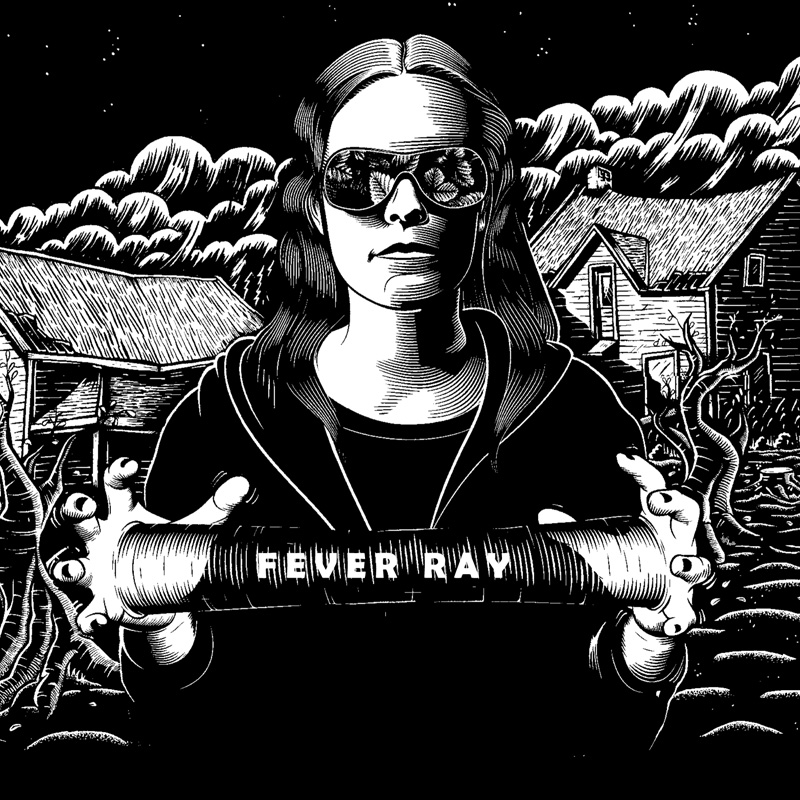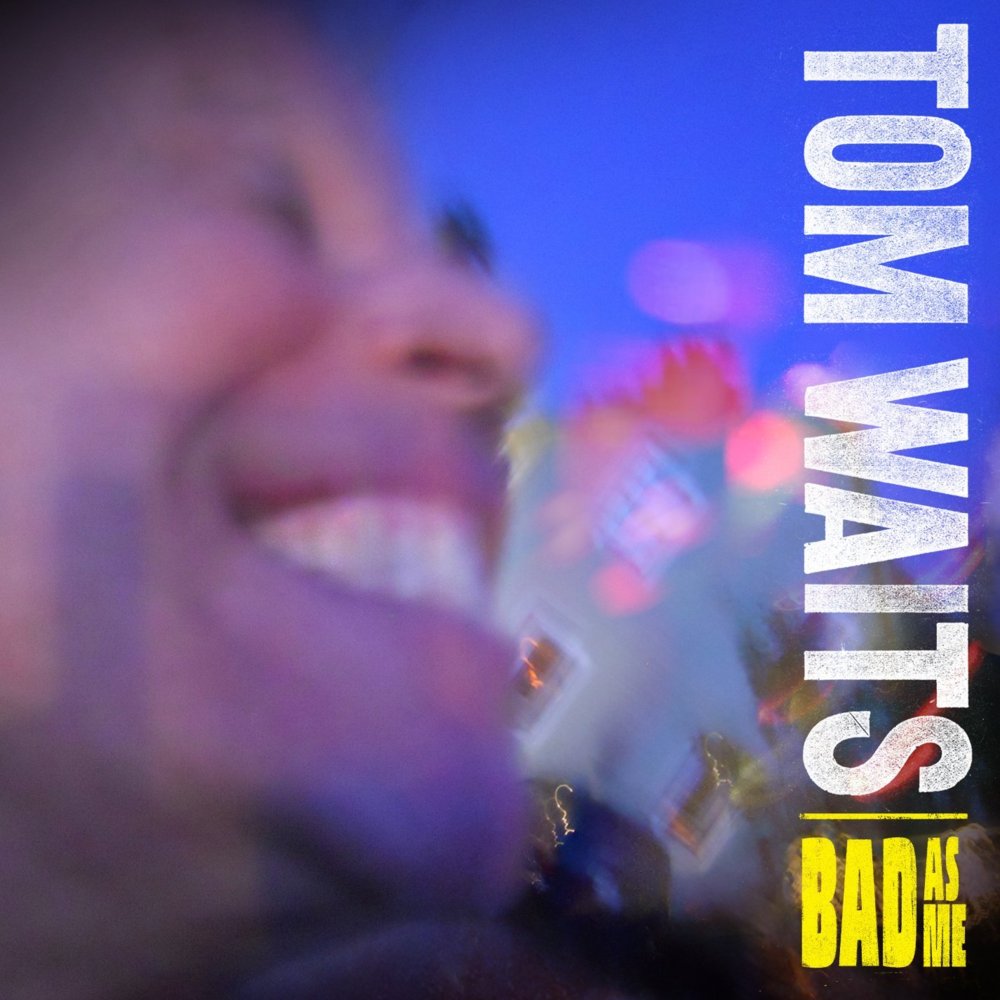Nick Cave and the Bad Seeds : Push the Sky Away

How does one become larger than life? How does one even make oneself seem so? I found myself thinking about this while listening to the latest transmission from Nick Cave and his ever capable cohort of Bad Seeds, sparked by a comment made by James Murphy while he was being interviewed by Chuck Klosterman in Shut Up and Play the Hits. There are very few larger than life presences in the world of rock ‘n’ roll these days, but there’s Nick Cave—something to that effect. Certainly, Nick Cave has presence, and a penchant for using and, more and more, inventing mythic imagery in his lyrics. But, also if not equally important, he can be silly in a way that somehow lends itself to rock ‘n’ roll grandeur.
While silliness certainly isn’t the overriding tone of Push the Sky Away, it crops up here and there. I find it, for instance, in the description of the city girls shaking their asses by the waterside while the local boys watch in “Water’s Edge,” the line “I was the match that would fire up her snatch,” in “Mermaids,” and the presence of “Hannah Montana”/“Miley Cyrus” in “Higgs Boson Blues.” It’s the kind of thing you basically have to already be Nick Cave to pull off. You need to not only have a “Release the Bats,” a “From Her to Eternity,” and a “No Pussy Blues” behind you, but an “Into My Arms,” a “Ship Song,” and a “Henry Lee.” You have to be able to be a slightly unhinged force of destruction, but also a vulnerable human being capable of directness as well as passing from mask to mask handed down by myth.
Personally, my favorite songs here are the straight ones that open and close it – “We No Who U R,” and “Push the Sky Away.” They are both moody pieces, and the latter starts off sounding like it belongs to a Fever Ray record, all synthetic darkness and the voice that rises out of its depths. Both speak to weariness and the will to break through it, back into the light, the open air, the sky kept at a more comfortable distance. Breath and forgiveness, trees and the birds that sing in them: “We No” casts our fate as the forest’s, to dwell in and above darkness, close to the springs of life but also to the shadowy realms from which they feed. Think Twin Peaks.
“Higgs Boson Blues” reminds me of On the Beach-era Neil Young, a sort of mixture of that album’s title track and “Revolution Blues,” but with Cave wondering who had more to gain, the devil or Robert Johnson, forgetting as he remembers on a drive “down south” to Geneva. Flame trees. Dreams. Fantasies. The so-called “God Particle.” Things need to get a little heavy before there is anything worth telling, much less retelling. “Jubilee Street” meanders over a lazy guitar line, the vague story of a lady once known, now dead, which seems like a distant relative to a few songs from Lou Reed’s Berlin. The song that details the moments after Cave wrote it, “Finishing Jubilee Street” is better, a house of mirrors passing dream and reality back and forth across a drift of opium atmospherics. Then the chorus makes it a pop song.
A couple more lines that need to be mentioned: “The past is the past and its here to stay /Wikipedia is heaven when you don’t want to remember anymore.” That comes from “We Real Cool,” probably the most menacing thing on the record; but the menace is only the spine of the thing, the growling bass. Somehow it becomes a pensive space, touched with the fact of mortality, which turns on the point at which memory is rejected in favor of a prosthesis that serves its function without being subject to emotion. Such are the myths of modern man: they are beholden to an archive of collective memory that has to be both drawn on and escaped for them to be born.
Label: Bad Seed Ltd.
Year: 2013
Similar Albums:
Note: When you buy something through our affiliate links, Treble receives a commission. All albums we cover are chosen by our editors and contributors.




